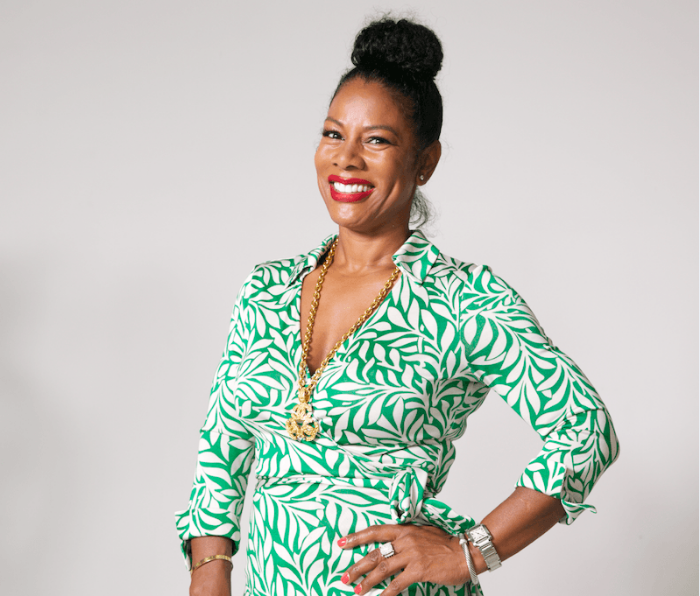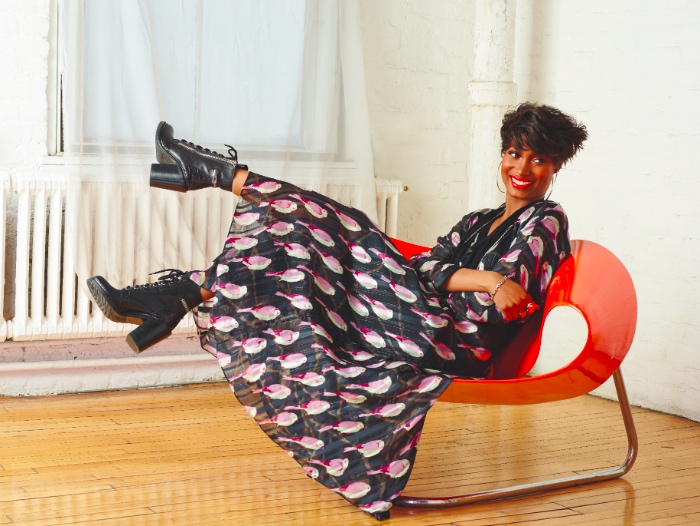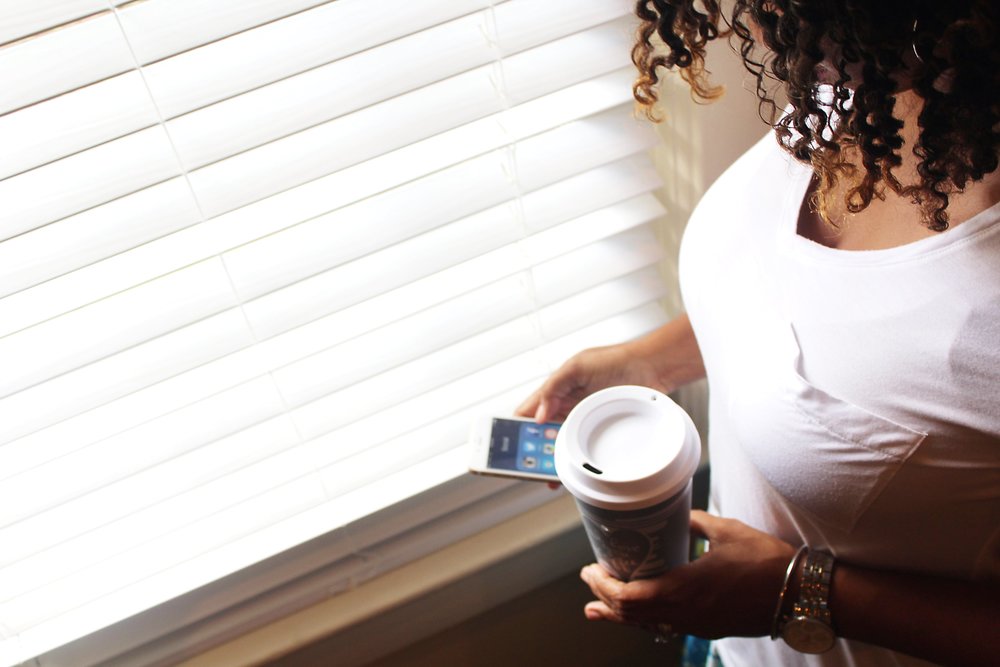Black women’s hair and how we choose to wear it has been an incredibly touchy subject for years—probably for as long as there have been Black women on Earth. Whether it’s being policed or celebrated, it’s always packed with meaning.
This couldn’t be more true than in the ongoing natural versus relaxed hair war. What should just be a personal beauty choice can become a statement for or against Blackness, self-love, and professionalism depending on who you ask or what comment section you’re reading.
But a familiar name in Black hair care has had enough. Dr. Miracle’s has launched Undo The Hurt, an initiative focused on “mending the broken relationship between natural and relaxed women.” Instead of demonizing women for choosing to go natural or keeping their regular relaxer appointments, the brand wants to promote healthy hair care and repair damaging beauty narratives we’re passing on to the next generation.
“We as Black women shame one another for our beauty choices and we just have to stop it,” says Kimberly Hairston, chief marketing officer of DRM-JPC Brands and leader of the Undo the Hurt cause. “It’s just not healthy for the person that’s doing it and the person who’s having it done to them.”
Hairston tells us what she thinks started the natural versus relaxed hair beef and how her campaign plans to end it.

Tell me about the Undo The Hurt initiative. What brought it on?
We went out and talked to women about their hair. One of the things we noticed is that women with relaxers were feeling very guilty about having a relaxer. Once we started going on the blogs and seeing “Team Natural” and “Don’t relax” [comments] I thought, Wow, no wonder these women were feeling guilty about their hair choices.
We need to really empower women to love themselves and their hair choices, and not feel like someone else can judge them. It goes both ways. I don’t want to be judged if I have a relaxer or natural, and I don’t want people to judge other women because they decide to have their hair relaxed or natural.
What do you think is informing that feeling of “Well, I’m better than you because my hair is…”?
I think women have been taught to compete with one another. It’s not just done with hair—it’s done with skin color, it’s done with weight. It goes back to our history, I really hate to say it. I studied African-American history and I read the Willie Lynch letter, [which outlined how slave masters could control their slaves by pitting them against each other]—it was really set to divide us based on any little thing. The shame right now is that we continue to do it to ourselves.
What are some misconceptions around natural hair and relaxed hair that you want to undo?
I am a natural hair wearer; my hair has been natural the majority of my life. I think the misconception is just because my hair is natural, it doesn’t break or it’s healthy, and that is not the case. Natural hair needs to be cared for, moisturized, conditioned, trimmed. Natural hair can have damage.
There’s really no difference in the maintenance between relaxed and natural, just the style. You can have relaxed hair that is healthy as well, you just have to take care of it.

How do you think we can fix that divide?
We’re inviting women to share how they’re going to undo the hurt for one another. I spoke at a conference recently in Florida, and I invited women to tell their stories. I thought maybe one or two would want to come [up], but there were 100+ women there and they were [all] raising their hand.
One woman said, “I want to teach my daughter that she is beautiful. She puts a towel on her hair to [pretend] like that’s her hair. I want her to feel beautiful no matter whether her hair is short [or] long.” She said the way she’s going to undo the hurt is to pass on her beauty empowerment to her daughter to make her feel beautiful. And I thought that was great.
Do you feel comfortable sharing a hurt story of your own?
My grandmother was an old-school grandmother. She believed straight hair is better [and] light skin is better. I happened to have curly hair and my cousin who doesn’t have curly hair said she always felt a lot of pain from my grandmother because they would say to me, “Oh, Kimmy’s really beautiful because she has all this long, curly hair” and made her feel like she wasn’t.
The funny thing is I felt that same pain that she was feeling because I’m the chocolate girl in my family. My grandmother would say, “You can’t go swimming, because you’re too dark, but your brothers can go swimming. You’re dark enough, Kimmy, you can not get into that pool.”
I know my grandmother didn’t know what she was doing necessarily, but that pain sticks with me. My undo the hurt is if I hear anyone talk about “good hair” or “fair skin” [being better], I will correct them.

What can women do to reverse that mindset for themselves and their daughters? Sometimes you may not even realize the way you talk or act could affect your child.
I think those small things that you do with your child, when you start to comb her hair [for example], really talk to her. [Tell her], “No matter your hair texture, the length, whatever, you are beautiful.”
My beauty self-esteem is deeply grounded in my mother’s self-esteem and her mother’s. My mom was able to break a cycle: She was the darkest one in her family, and then I was the darkest one among my siblings. She never made me feel less [than]. I don’t have a daughter, but if I did, I would pass that on. Even now I feel like I can walk into any room and feel beautiful.
What has surprised you the most about the stories you’re hearing from women?
The thing that has been the most surprising is that it’s still very painful for us. You would think in 2015 we would be empowered to wear weaves, curls, relaxed [hair], whatever. But we really are not.
What are the next steps for the initiative?
We are going to do a full launch. The ultimate goal is to do a documentary and to get people—celebrities, real women, hair enthusiasts, etc.—to talk about it. [We want to] launch it with our website and to have a conversation that we can go back to and say, “This is the way we can undo the hurt and help us grow as women.”
And what will it look like when the hurt is completely undone? Do you think it can happen?
I think that over time it can happen. We see the acceptance of the transgender movement, and that’s huge. So I think hair is so much more simple! (Laughs) We can accept [being trans] as being beautiful and accept people for their choices. Why as Black women can’t we accept our choices about our hair?
I do believe I live in a world where anything can be conquered. Then we can go on to bigger issues—making sure police brutality doesn’t happen in our communities—and leave this hair thing alone.
Related Articles
“Beyond Classically Beautiful” Proves Beauty Comes In All Shades
Vivrant Beauty: Could This Be The Sephora For Women Of Color?

















